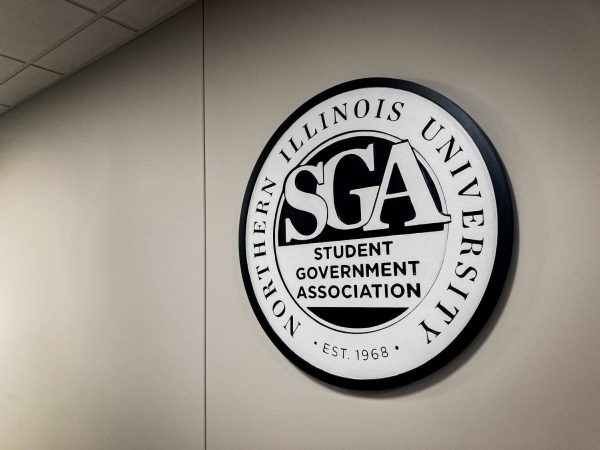NIU loses money in student revenue, mandatory waivers
October 21, 2021
DeKALB — Every year there are increased costs that come with running a university; unfunded mandates are another set of costs.
“If you go back and look historically where state funding used to be, say around 2000 compared to where it is, today it’s declined substantially,” Chief of Staff Matt Streb said.
If you add the value of the tuition waivers and fees, the mandatory waiver program costs the university about $4 million, Streb said. (Note: $4 million is the total for Fiscal Year 2020)
The report, in the “Value of Waivers” section, shows the total value – in thousands – of all the waivers of that category.
“We’re very supportive of the programs, but it does, as you can see, have a financial impact on our budget,” Streb said.
Sarah Chinniah, vice president and chief financial officer, wouldn’t say that NIU funds these waivers; rather, NIU just doesn’t plan on getting revenue for these 770 students. (Note: 770 is only for FY20)
“Traditionally, when students come in, there’s tuition revenue or there’s scholarship revenue or there’s something in place that supports their time here,” Chinniah said.
However, that is not the case with these mandatory waivers because there has been a history with these programs. NIU plans on not receiving revenue that’s associated with these students. NIU has to reconcile what this foreseen loss of revenue means for the programs hosted by NIU, Chinniah said.
“It’s something that we just plan for in the course of setting up for the year,” she said.
These waivers cover foster children under the Department of Child and Family Services scholarship program, veterans, children of employees, ROTC students, and students pursuing special education, and senior citizens.
“These are not the only unfunded mandates that the university has,” Streb said. “There are all sorts of things that the (Illinois) legislature puts into play right and pass that they don’t actually give us funding to implement.”
NIU supports a lot of the programs proposed by the state legislature. Streb believes the problem is that since these programs are unfunded, NIU has to ask: How do these costs figure into its own budget? How to cover the costs of those programs?
Neither Streb nor Chinniah are sure when the university lost funding on each of these programs.
“I think the most recent had to do with scholarships or the tuition waivers for students that may have come through the Illinois foster system,” Chinniah said. The legislative record lines up with this. The act in the Illinois Compiled Statutes was passed in 2014.
A great example of programs the university supports is the recent bill that just passed requiring tampons and other menstrual products to be in restrooms on campus. The money isn’t coming from the state so they need to figure out where the money comes from. NIU supports the mandates, but Streb wishes the state would help with the cost.
Streb said that NIU is not trying to get funding for specific programs, such as the DCFS scholarship, but is instead trying to increase education funding for the university in general.
“We’re going out saying higher education is a great investment and we need more resources to make sure that we’re giving our students an exceptional education,” Streb said.
On the Board of Trustees tuition and fee waiver report, there is a section for the General Assembly scholarship, but that program was eliminated a couple of years ago. It was controversial to have a program where a representative could select a student to give a scholarship to, Streb said.
“That’s why it’s at zero,” Streb said. “Probably shouldn’t be on the category (in the report) anymore because, so far as I understand that the program doesn’t exist.” Streb is not sure why Children of Employees is even listed in the discretionary waiver section, as it is a mandatory waiver and the value is zero. There isn’t really a reason to include it in this report.













